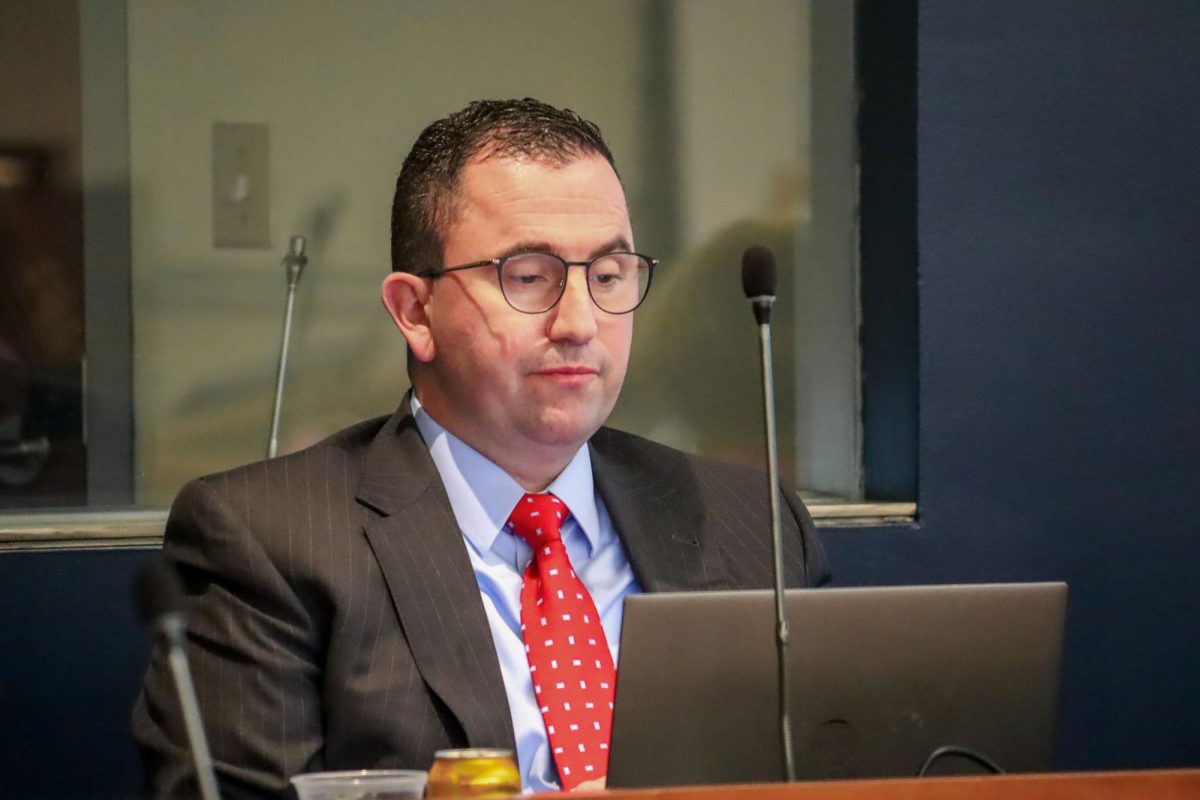The University continues to have a “strong” balance sheet but its revenue margin fell behind the target in fiscal year 2023, Chief Financial Officer Bruno Fernandes said at a Staff Council meeting Friday.
Fernandes said officials strive to achieve a 2 percent “safe zone” between revenue and expenses each fiscal year but recorded a 1 percent difference between revenue and expenses in FY 2023. He said officials use the margin to fund unforeseen expenses and will work toward increasing the efficient use of investments to reach the 2 percent target.
He added that the 2 percent margin is the standard held by Moody’s Investors Service, a credit rating agency that affirmed GW’s A1 credit rating in 2022.
“If anything happens that is unforeseen, and then I like to say sometimes the wind blows in the wrong direction or something like that occurs, it doesn’t leave a lot of room for dealing with those things,” Fernandes said at the meeting.
He said 66 percent of GW’s total revenue came from tuition in FY 2023, which officials can direct toward any University expense, while revenue sources like donations are limited to what the donors want their money to fund. He said the distribution of expenses does not leave much money for funding bonuses, like merit pay for high-performing staff, because 56 percent of expenses were spent on compensation and benefits, 17 percent was spent on purchased services and 5 percent was spent on occupancy in FY 2023.
“The numbers kind of create some tightness there,” Fernandes said at the meeting.
He said the University’s balance sheet is continuing to grow from increases in investments and endowment. Officials announced in October that the endowment, a financial foundation used to fund professorships, scholarships and construction projects largely from donations, rose to $2.5 billion after a slight decline. He added that GW’s long-term debt, which sat at $2 billion in FY 2023, has “stabilized” after rising to $2.2 billion in FY 2020.
“If you look at our debt profile over the last few years, we haven’t really raised anything,” Fernandes said. “We’ve been very careful.”
Jay Goff, the vice provost of enrollment and student success, also led a presentation outlining GW’s strategic enrollment management goals of research, recruitment and retention at the meeting.
Goff said fewer than 40 percent of GW students had federal student loans, with graduates carrying an average debt of $20,500 last year. Goff said in 2022 that students graduate with an average of $20,500 in federal loan debt each year.
“One of the key pieces is that what we recognize is that affordability is currently and will continue to be an issue,” he said.
Staff Council President Bridget Schwartz said she will be presenting a report at the next Board of Trustees meeting in February and will also be meeting with Board Chair Grace Speights before the meeting.
Kelly Whittier, a Milken Institute School of Public Health representative, said the Staff Council is “grateful” that Human Resource Management and Development listened to their feedback on updating the vacation policy to give staff a “bonus week” off.
Officials terminated the “use it or lose it” policy, in which staff members lose their paid leave if they do not use it by June 30, to where staff can accrue time off to a maximum amount determined by their years at GW. University Vice President and Chief People Officer Sabrina Minor said at a council meeting in August that the “use it or lose it” system concerned her because staff would take their time off close to the June 30 date, leaving the campus empty during that period.
“This is like truly a bonus week that I would encourage staff to take advantage of,” Whittier said.
Lauren Simon and Sara Montalvo Ona contributed reporting.





